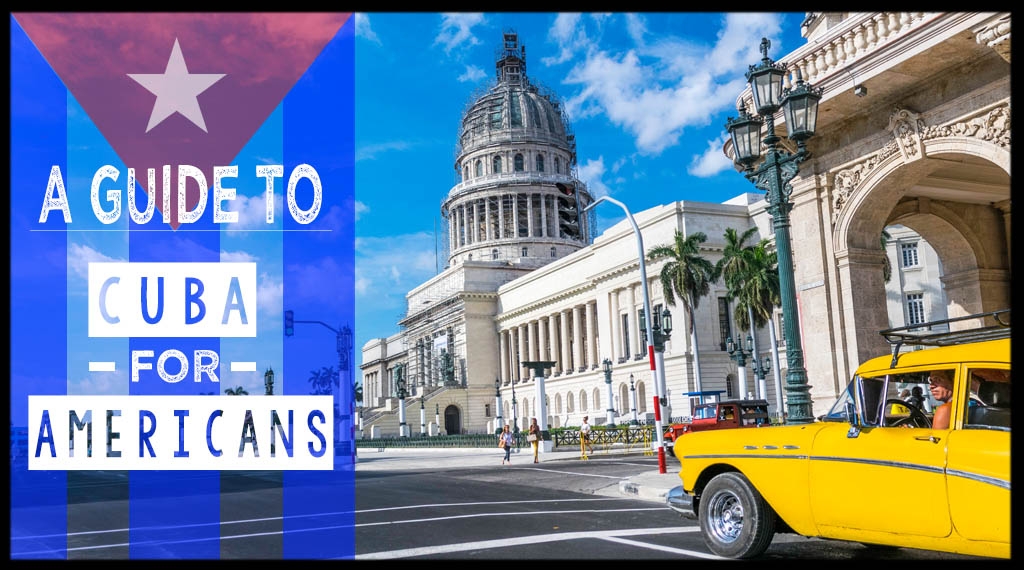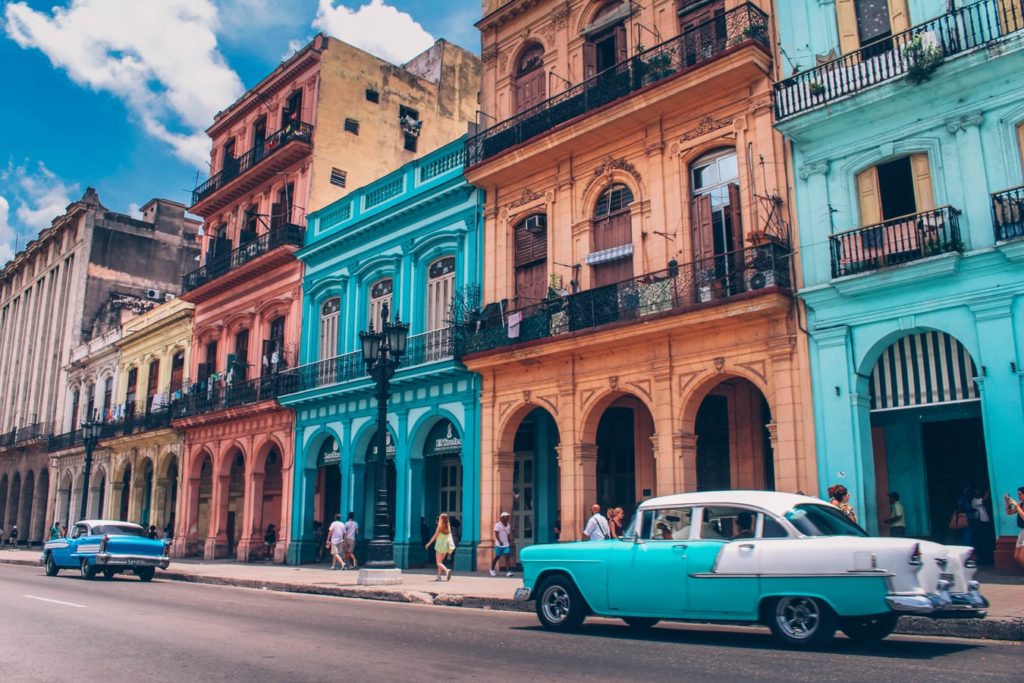Can Americans Travel To Cuba - Legal Travel Categories For Americans Visiting Cuba
Traveling to Cuba has long been a subject of interest and complexity for Americans due to the intricate regulations governing such trips. The question still lingers in the minds of many "can Americans travel to Cuba?" While direct tourism is not permitted, there are multiple legal avenues that U.S. citizens can pursue to explore this culturally rich island.
Author:Tyreece BauerReviewer:Karan EmeryJun 25, 202428.9K Shares466.2K Views

Traveling to Cuba has long been a subject of interest and complexity for Americans due to the intricate regulations governing such trips. The question still lingers in the minds of many "Can Americans travel to Cuba?" While direct tourism is not permitted, there are multiple legal avenues that U.S. citizens can pursue to explore this culturally rich island.
Legal Travel Categories
The U.S. Department of Treasury's Office of Foreign Assets Control (OFAC) allows Americans to travel to Cuba under 12 authorized categories:
Family Visits
Americans can visit family members residing in Cuba, making it one of the most common legal reasons for travel.
Official Business
This includes business related to the U.S. government, foreign governments, and certain intergovernmental organizations.
Journalistic Activity
Professional journalists and those regularly employed by a news organization can travel to Cuba to cover newsworthy events.
Professional Research And Meetings
Individuals conducting professional research or attending professional meetings or conferences related to their fields can visit Cuba under this category.
Educational Activities
Accredited U.S. institutions can send students and educators to Cuba for certain academic purposes.
Religious Activities
Religious organizations can travel to Cuba to engage in religious activities.
Public Performances And Competitions
This includes participation in public performances, clinics, workshops, athletic and other competitions, and exhibitions.
Support For The Cuban People
Travelers can engage in activities that support the Cuban people, fostering direct contact and assistance.
Humanitarian Projects
This encompasses activities such as medical and health-related projects, environmental projects, and disaster response initiatives.
Activities Of Private Foundations
Private foundations or research or educational institutes can conduct activities in Cuba under specific conditions.
Information Materials
This involves the exportation, importation, or transmission of information or informational materials.
Authorized Export Transactions
Certain export transactions are authorized by specific regulations.
Travel Restrictions
Tourism Prohibition
Pure tourism remains prohibited. Travel must fit into one of the authorized categories.
Documentation Requirements
Travelers must keep records of their trips for five years to demonstrate compliance with OFAC regulations.
Accommodation Restrictions
There are specific restrictions on staying at certain hotels controlled by the Cuban military or security services.
Flights And Transportation
Direct Flights
Several U.S. airlines offer direct flights to Cuba, making air travel convenient.
Cruises
Cruises from the U.S. to Cuba are restricted under recent policies, though this may change.
Financial Transactions
Currency And Payments
While American credit and debit cards can be used, many U.S. banks do not support transactions in Cuba. It's advisable to carry cash.
Spending Restrictions
There are limitations on spending money in Cuba, especially with entities on the U.S. State Department's "Cuba Restricted List."
Health And Safety
Health Insurance
Cuban authorities require proof of health insurance. U.S. health insurance typically does not cover travel to Cuba, so special travel insurance might be necessary.
COVID-19 Considerations
Travelers should be aware of any COVID-19-related travel restrictions or requirements, such as testing and vaccination mandates.
Cultural And Social Considerations
People-to-People Contact
Encouraged under the authorized categories, promoting direct interactions with Cuban citizens.
Cultural Respect
Visitors should respect local customs and traditions and be mindful of the political context in Cuba.
Can Americans Travel To Cuba - FAQs
Can Americans Travel To Cuba For Tourism?
No, pure tourism is prohibited; travel must fit into one of the authorized categories.
What Documentation Is Needed For Travel To Cuba?
Travelers must keep records of their travel to Cuba for five years to show compliance with U.S. regulations.
Are There Direct Flights From The U.S. To Cuba?
Yes, several U.S. airlines offer direct flights to Cuba.
Can Americans Use Credit Cards In Cuba?
While American credit and debit cards can be used, many U.S. banks do not support transactions in Cuba. It is advisable to bring cash.
What Health Insurance Is Required For Travel To Cuba?
Cuban authorities require proof of health insurance. Special travel insurance may be necessary as U.S. health insurance typically does not cover travel to Cuba.
Conclusion
Traveling to Cuba as an American is feasible within the framework of U.S. regulations. Planning your trip within one of the authorized categories, staying updated on policy changes, and being prepared for specific requirements will ensure a smooth and compliant travel experience.

Tyreece Bauer
Author
A trendsetter in the world of digital nomad living, Tyreece Bauer excels in Travel and Cybersecurity. He holds a Bachelor's degree in Computer Science from MIT (Massachusetts Institute of Technology) and is a certified Cybersecurity professional.
As a Digital Nomad, he combines his passion for exploring new destinations with his expertise in ensuring digital security on the go. Tyreece's background includes extensive experience in travel technology, data privacy, and risk management in the travel industry.
He is known for his innovative approach to securing digital systems and protecting sensitive information for travelers and travel companies alike. Tyreece's expertise in cybersecurity for mobile apps, IoT devices, and remote work environments makes him a trusted advisor in the digital nomad community.
Tyreece enjoys documenting his adventures, sharing insights on staying secure while traveling and contributing to the digital nomad lifestyle community.

Karan Emery
Reviewer
Karan Emery, an accomplished researcher and leader in health sciences, biotechnology, and pharmaceuticals, brings over two decades of experience to the table. Holding a Ph.D. in Pharmaceutical Sciences from Stanford University, Karan's credentials underscore her authority in the field.
With a track record of groundbreaking research and numerous peer-reviewed publications in prestigious journals, Karan's expertise is widely recognized in the scientific community.
Her writing style is characterized by its clarity and meticulous attention to detail, making complex scientific concepts accessible to a broad audience. Apart from her professional endeavors, Karan enjoys cooking, learning about different cultures and languages, watching documentaries, and visiting historical landmarks.
Committed to advancing knowledge and improving health outcomes, Karan Emery continues to make significant contributions to the fields of health, biotechnology, and pharmaceuticals.
Latest Articles
Popular Articles
